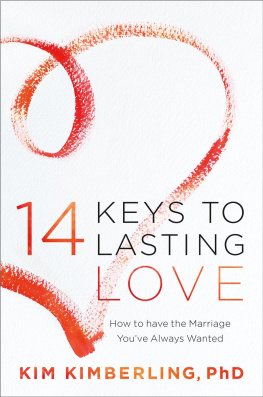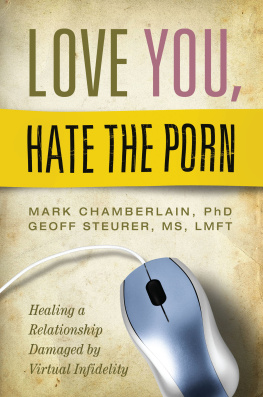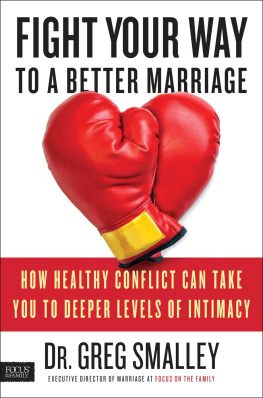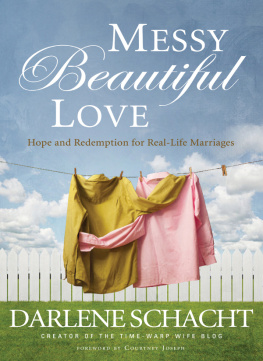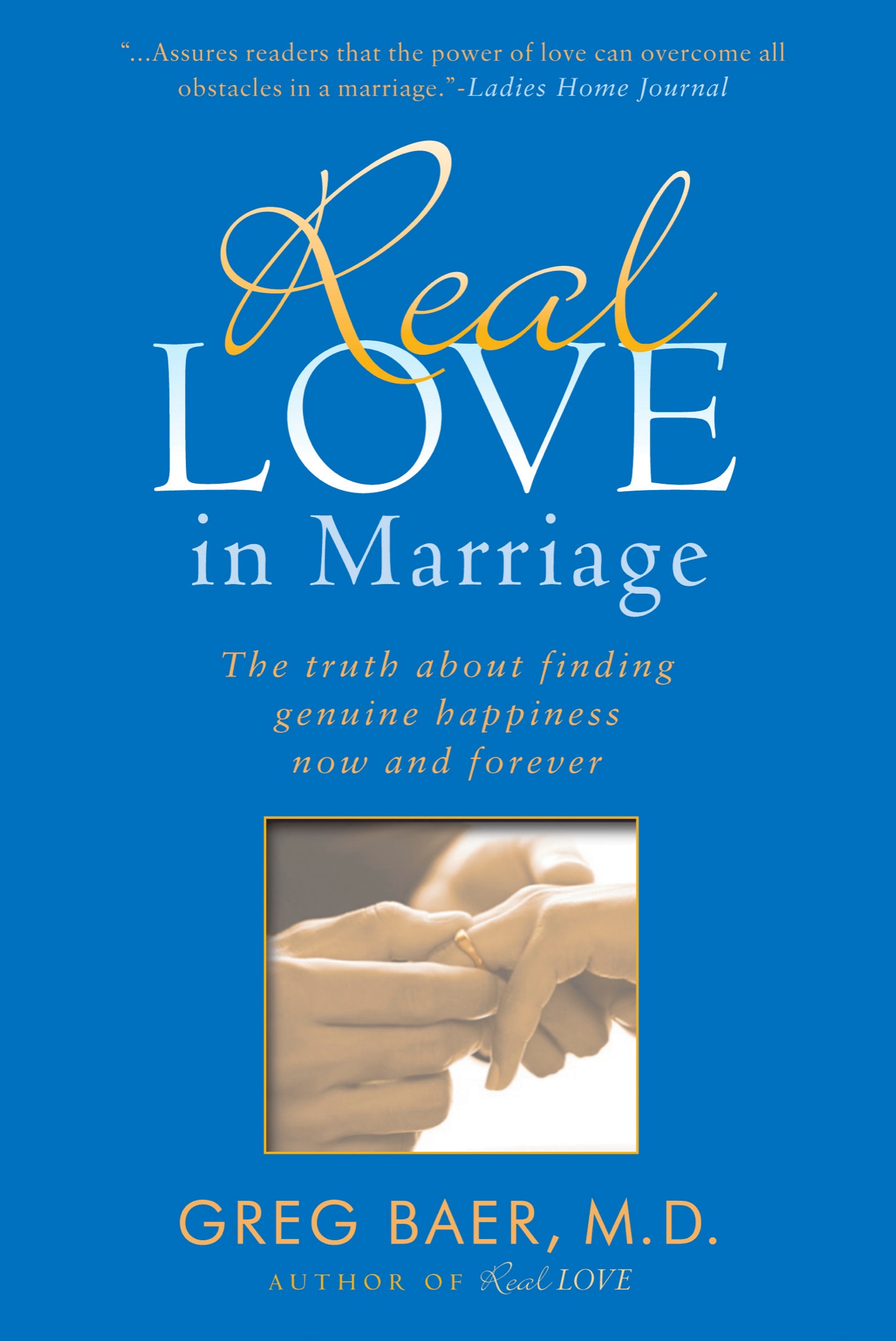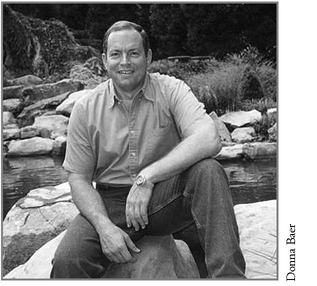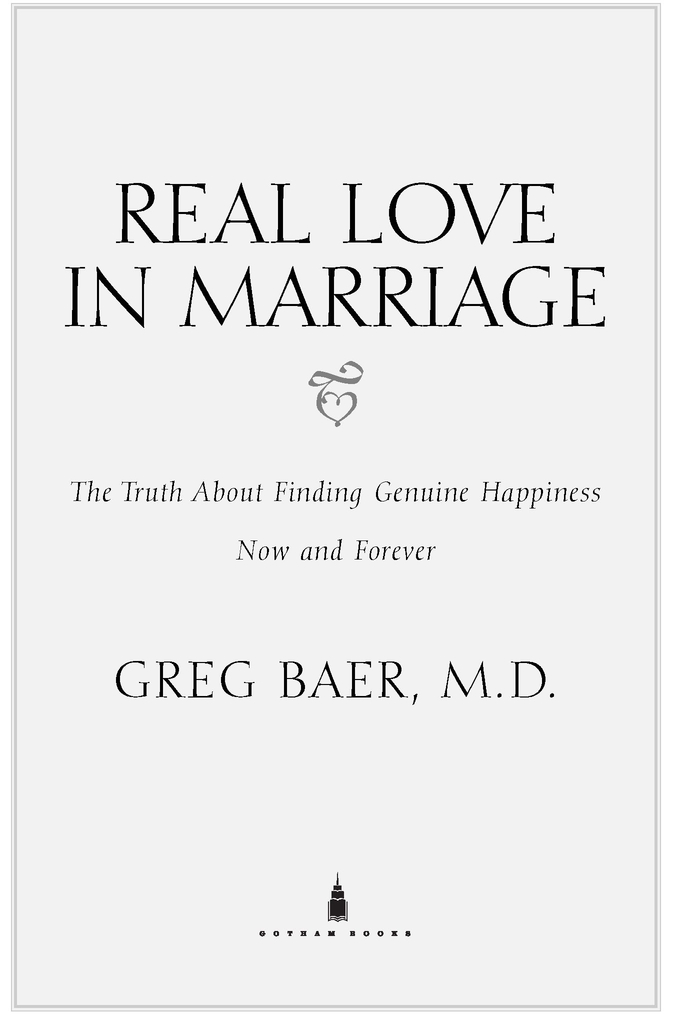Table of Contents
Greg Baer, M.D., is the author of Real Love and founder of The Real Love Institute. An expert on the subjects of anger elimination, relationships, dating, love, marriage, parenting, and workplace conflict resolution, he conducts seminars and workshops around the country. Greg and his wife, Donna, live in Georgia and have raised seven children.
Introduction
In Real Love: The Truth About Finding Unconditional Love and Fulfilling Relationships, I talked about the importance of Real Loveunconditional lovein our lives. With Real Love, we uniformly experience a profound and lasting happiness that enables us to have richly fulfilling relationships with the people around us.
I did not suppose, however, that I would address all relationship issues in one book. Because marriage is a special relationship, we need to discuss more of the questions that pertain to it. Its obvious that we need a greater understanding of marriage: 56 percent of the people in this country are married, but more than half of those marriages will end in divorce. In light of this widespread failure in marriage, we must ask these questions:
Why do so many marriages fail?
How is marriage different from other relationships? Why is it important to understand the differences?
Why do many couples fall in love, get married, and then fall out of love?
What exactly should we do when our spouses are angry, demanding, or withdrawn?
Why do we keep having the same destructive arguments with our spouses, over and over?
How do we make a fair division of the many jobs that must be done in the family?
What can we do to settle our differences with our spouses about sex, the children, and other issues?
Is it really possible to eliminate conflict in marriage and find the consistent love and happiness weve always wanted, regardless of the injuries weve already experienced?
In Real Love in Marriage, well answer these critical questions. The principles well discuss have proven to be consistently successful in improving the success of marriages across the country. If youve read Real Love, youll find Real Love in Marriage easier to understand. If you havent, dont worry: Ill summarize most of the first book in the first two chapters of this one.
A word about gender: To avoid the tiresome repetition of the phrases him or her, his or hers, and he or she, I will often use the pronoun of one sex or the other. I might say, for example, When someone feels sufficiently threatened, she will react with behaviors she learned in the past, even when those behaviors are harmful to herself and others. It should be understood that any such description applies to both men and women.
The Great Secret
The Real Reason for Marriage Problems
Whats the secret to a great marriage? What can you do to make yours better? Because any relationship is a natural result of two people making independent decisions, we cant meaningfully talk about the relationship between two people until we understand the nature and causes of individual human behavior. In these first two chapters well discuss why we behave as we do and what we can do about it. Then well talk about the specific things we can do to create a richly rewarding marriage. Lets begin by observing an interaction between Mark and Susan, a married couple.
Mark comes home one evening after an unusually long day at work and finds ketchup splattered on a wall near the front door. Stomping into the kitchen, where Susan is busy working at the sink, he says in a harsh tone, Whats that mess on the wall?
Looking up from her task, Susan angrily replies, You wanna be useful, for once? Why dont you clean it up?
Offended, Mark snaps back, Hey, I was only asking a question, and then he stalks out of the room, muttering something about her moods. For the rest of the evening, they silently avoid each other.
The next day, Mark learns what happened the day before. After work, Susan picked up the children from school and arrived home moments before he did. One of the children stumbled while running with a plate of food, spilling fries and ketchup everywhere. Susan had cleaned up the floor and was preparing to wash the wall at the very moment Mark had demanded an explanation of the mess. Shed already had a tough day, and Marks accusatory question was more than she could stand.
Our Spouses Are Not the Cause of How We Feel and Behave
Weve all had experiences like that. When our spouses are late, or fail to do something weve requested, or dont give us the attention we want, we tend to become irritated, or withdraw, or act like weve been treated unfairly. And we naturally hold our spouses responsible for our reactions, as Mark and Susan both did. Susan blamed Mark for her irritation, reasoning that she wouldnt have become angry if he hadnt first attacked her about the ketchup on the wall. Mark, in turn, blamed Susan for his anger, since he wouldnt have reacted as he did if she hadnt snapped at him.
Although blaming our spouses for how we feel and behave often seems reasonablehow else can we feel and respond, we ask ourselves, when they say and do those thoughtless and unkind things?our blaming is never justified. Until we see that, well continue to point fingers at each other and repeat the unproductive feelings and behaviors that cause so much harm to our relationships and to our own happiness.
Imagine that youre fifty years old. Youre sixty pounds overweight, and you havent seriously exercised in many years. Although your cholesterol and blood lipids are sky-high, you eat a half pound of bacon every morning. You have high blood pressure, but you dont take the medication that was prescribed for it. Even though your doctor has told you it will kill you, you smoke two packs of cigarettes every day. And, finally, both your parents died of heart attacks before they were forty.
One day you and I go shopping at the grocery store, and when we get home I insist that you help me carry the heavy bags of food into the house. You protest, but I pick up a bag and put it in your arms, and as you start walking up the steps to the front door, you keel over with a heart attack.
Did I cause your heart attack? That might seem like a reasonable claim. After all, if I hadnt insisted you carry the bag of groceries, you might not have had the attack. But its still ridiculous to say that I caused it. Your heart attack was caused by your weight, diet, smoking, genetics, cholesterol, and lack of exercise, all of which had nothing whatever to do with me. You were a heart attack waiting to happenessentially, youd chosen to have oneand I just gave you an opportunity to have it.
In a similar way, although our spouses do affect the way we feel in any given moment, their contribution is minor. When we get angry or feel hurt in response to something our spouses have done, there are always many other factors that powerfully affect our feelings and behavior, none of which are determined by our spouses. In any given moment, were reacting to a lifetime of events and feelings, not only to something our spouses have done or not done. In fact, if were sufficiently unhealthy emotionally and spiritually, our spouses dont have to do


